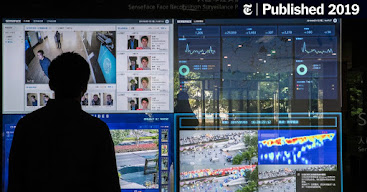What is CONFIRMATION BIAS?

Where do your opinions, beliefs, and values come from? If you're like most people, your beliefs and values form from experience and your personal knowledge. When forming these opinions, as humans we tend to be found guilty in a way where we only listen to information that suits our interests or beliefs. This is called confirmation bias—"the tendency to process information by looking for, or interpreting, information that is consistent with one's existing beliefs" (Brittanica). This was first described by Peter Wason in 1960. Confirmation Bias can be completely unintentional; it is human nature to be most interested in information that suits one's beliefs. Nonetheless, confirmation biases result in ignoring inconsistent information because the person is gathering or recalling information selectively. It is hard to change or open one's mind up to opposing information once one has developed an opinion on the issue; the human should be emotionally distant from the issue. In turn, all biases are removed because one is able to take a step back, interpret the information and situation, and make a judgment.
How Confirmation Bias Works:
Example of Confirmation Bias
How Confirmation Bias Affects the World:
Confirmation Bias can be positive and negative. It is negative because it creates stereotypes where people will form pre-made judgments based on one's appearance or what they have heard about them. People create judgments about race, ethnicity, religion, social status, wealth. This affects society as a whole; creating a division in our community. Confirmation Bias is judging a book by its cover without not knowing the full story. Your judgments could make you close-minded—unaware of other information or experiences. However, this could also be seen as a positive. These pre-existing judgments could save you from making poor decisions. If someone offered me to smoke pot, I would say no because I don't know how my body will react, to my knowledge it's unhealthy and can cause lung damage. There are people, however, who argue that it helps their anxiety. Now, I don't have any first-hand experience with smoking, nor do I live with anyone who smokes. I don't research about it; however, by my own knowledge, I think it is bad. With this, I form a bias against it.
I think confirmation bias affects society today more than it's ever had in history: we can thank technology for this. There are countless platforms to receive news and information; therefore, it is important to be aware of the credibility of the sources who created that post. Social media platforms love to encourage confirmation bias. To keep us entertained on their platform, tech companies create algorithms to display content that supports our bias, encouraging stronger and deeper opinions to form. This negatively impacts society and our political system. The media interprets a political issue on way and releases information to the public. The public takes it and runs with it, no matter how truthful it is or not.





